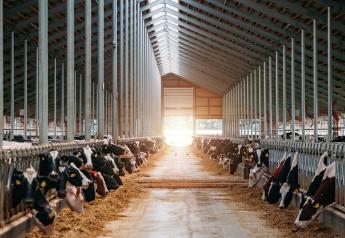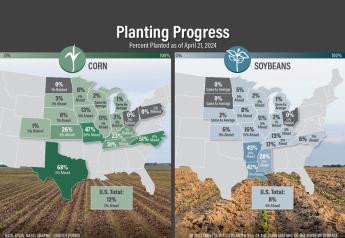Cheese-Loving Russians Turn to Emmental as Swiss Dodge Ban

Cheese is Switzerland’s most important agricultural export and the country’s neutrality is providing local producers with an edge in selling products like Gruyere.
Aug. 14 -- At Intercheese AG’s headquarters in Switzerland, the phone barely stops ringing these days. A Russian voice is usually at the other end.
Since Aug. 7, when Vladimir Putin’s government banned many food imports from nations supporting sanctions due to the country’s role in the Ukraine crisis, at least 14 Russian importers have contacted Intercheese. The reason for the surge in business: Switzerland hasn’t joined the European Union, the U.S., Canada, Australia and Norway in penalizing Russia.
"Russian importers are looking for the cheeses they can’t get from the Europeans anymore -- Mozzarella, Gouda and Edam," said Daniel Daetwyler, managing director at closely held Intercheese. The Beromuenster-based company sold as much as 20 tons of cheese to Russia in 2013 and will increase sales to the country of the varieties most affected by the EU embargo, even though it won’t be able to meet the demand, Daetwyler said.
Cheese is Switzerland’s most important agricultural export and the country’s neutrality is providing local producers with an edge in selling Gruyere and Emmental to 142.5 million Russians. Swiss producers shipped 431 metric tons of cheese to Russia last year, according to the Swiss Customs Administration, just a fraction of the almost 63,000 tons exported globally.
Russian Imports
"If the embargo remains, it’s possible we’ll export more cheese to Russia," Jacques Bourgeois, director of the Swiss Farmer’s Union, said by phone, adding that Gruyere is among the Swiss cheeses with most potential as exports have increased in recent years. "But Switzerland is a small country, we can’t just double production from one day to another. If there’s more demand, of course we’ll have to see that we can deliver. We’ll be pleased about every additional kilo we can export."
Russia imported $25 billion of products on the banned list last year, $9.5 billion of which came from nations now blacklisted, according to Capital Economics Ltd. estimates.
Border guards in Russia and Belarus turned back trucks loaded with cheese, yogurt and meat, officials from Lithuania and Estonia said last week. The euro area exported more than 292,000 tons of dairy products to Russia last year, with the Netherlands providing almost a quarter, followed by Germany and France, according to Eurostat.
"The food-import ban has a rather limited effect on growth in the eurozone," Peter Vanden Houte, chief euro-area economist at ING Groep NV in Brussels, said by phone. "For some areas in the sector, oversupply could cause prices to drop."
Emmental, Gruyere
According to Vanden Houte, there may be "some shifts towards Switzerland and it may profit from higher Russian demand as a substitute for European products -- but I doubt it’d be able to strongly increase production to meet the demand."
Emmental needs 120 days to ripen, while Gruyere takes six to nine months to mature. Forty-three percent of Swiss milk was used to produce cheese in 2013, according to industry data.
"Swiss businesses are going to profit from the embargo," David Escher, director of Swiss Cheese Marketing AG, said in a phone interview. "If there is a new market and there is new demand, it could be interesting for Switzerland, which clearly has an advantage as it can continue to export. It will take some time to estimate to which extent."
Russia’s affinity for premium food offers an "interesting consumer layer" to Emmi AG, Switzerland’s largest milk processor, spokeswoman Sibylle Umiker said. She declined to say how much Emmi exports to Russia before its Aug. 27 results.
‘Perfect Substitute’
Emmi rose as much as 4.9 percent in Zurich trading today, the biggest intraday gain since April 2013, and was up 4.2 percent as of 3:25 p.m. The shares have risen 18 percent this year, valuing Lucerne-based Emmi at 1.7 billion francs ($1.9 billion).
Enthusiasm about the increase in demand from Russian importers is partially overshadowed by the possible consequences of an unexpected lifting of the ban.
"There’s a big danger related to it," said Intercheese’s Daetwyler. "We can produce a huge amount of mozzarella, but if the sanctions are suddenly lifted, then we’ll have full stock and face the same problems our neighbors in Europe face now."
For Andrey Danilenko, head of National Milk Producers’ Union in Moscow, Swiss cheese producers could become a stand-in for those in the European Union.
"Imports of Swiss cheese to Russia may rise manifold," Danilenko said. "Switzerland may replace exclusive cheeses earlier shipped from other EU countries. Previously, a lot of cheese was imported from the Baltic states and Poland, which it couldn’t compete with due to higher logistics costs."
Sausage Meat
Danilenko expects production in Russia and its ally Belarus to replace most of the volume that will drop out because of the ban. Even so, Swiss and Serbian cheese may partially replace the dropout, he said.
"Switzerland is located between Germany, Italy and France, therefore it can be a perfect substitute for cheese from any of these countries," he said.
Meat is also on the Swiss shopping list for Russian importers, according to Micarna SA, a meat producer based in Courtepin, Switzerland. The company was contacted even before the food-import ban was imposed, with requests for pork, especially bacon and sausage meat, liver and some sausages, Daniel Signer, Micarna’s marketing head, said by e-mail.
"We assume they anticipated a boycott," Signer said, adding that in the short term, demand for Swiss meat products has already increased. "If it’s economically sensible and the export procedure is secured, we’ll try to meet the demand."







